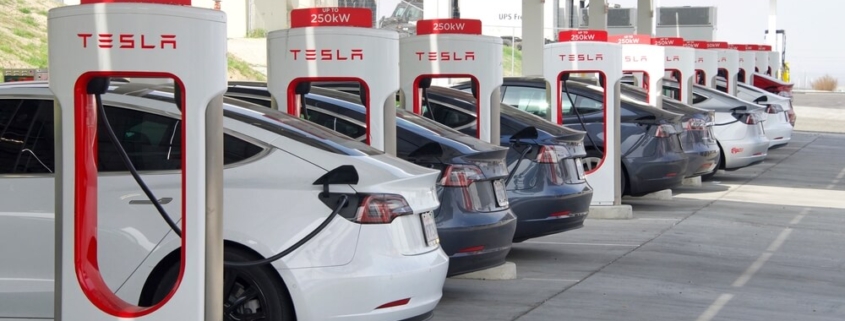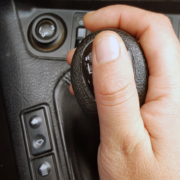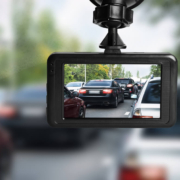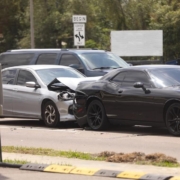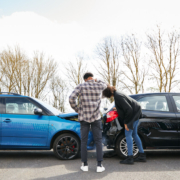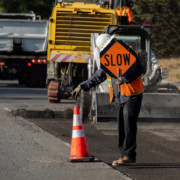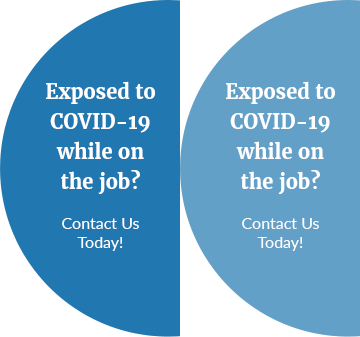Who Is Liable for a Self-Driving Vehicle Accident?
In 2018, Pennsylvania approved its first self-driving car. Autonomous car startup Aurora became the first company to obtain state approval to test its vehicles on the roadways. Since then, the company has formed partnerships with automakers such as Volkswagen and Hyundai to incorporate self-driving vehicle technology into their automobiles.
Self-driving cars are largely seen to be playing a major role in the future of transportation. And autonomous vehicle manufacturers argue that widespread implementation of their vehicles will make the roads much safer. They often point to crash causation studies that show a high percentage of auto accidents being caused by human error (between 90% and 94%). So, if we could just eliminate the human element, we could significantly reduce the number of vehicle crashes.
Unfortunately, things are not quite that simple. While it might be true that human error plays a role in the vast majority of car accidents, this does not necessarily mean that these accidents are the fault of the drivers involved. In many cases, the actions of outside parties such as auto mechanics, auto manufacturers, and road construction/maintenance crews contribute to a vehicle crash.
Although self-driving cars can move from point A to point B without a driver, the operation of their automation system does not happen without the human touch. Someone still has to design, manufacture, assemble, and program all of the vehicles and vehicle parts in a way that allows them to work together and power the car safely. But with so many moving parts, there is a lot that can go wrong.
Responsibility for Autonomous Car Accidents: A Case Study
On March 18, 2018, a self-driving Uber test vehicle struck and killed a pedestrian in Tempe, AZ in the first recorded case of a pedestrian fatality involving an autonomous vehicle. Uber temporarily suspended its tests following the accident.
In this case, the pedestrian was jaywalking, and the vehicle’s computer was unable to determine whether she was a pedestrian, bicycle, or another car. Because it did not recognize her as a pedestrian and could not predict where she was going, the vehicle’s braking system was not triggered to stop and avoid crashing into her.
This is a major drawback with autonomous vehicles many skeptics have brought up – how does a self-driving vehicle make critical judgment calls when faced with adverse road conditions? For example, if the vehicle slips on ice during the winter and is heading toward a collision with either another vehicle or a pedestrian, how does it decide which way to steer the car?
The Uber self-driving test car failed to make a proper judgment when it crashed into a pedestrian, costing a 49-year-old woman her life. It is also important to note that there was a safety driver in the car who could have applied the brakes manually to avoid the crash, but he was watching a video on his smartphone instead of paying attention to the road at the time that it occurred.
In this case, there was plenty of blame to go around. Liability for the accident was assigned to several different parties:
- Uber
- The Self-Driving Car Manufacturer
- The Safety Driver (in fact, he was even charged criminally for the crash)
- The State of Arizona
- The Victim
As you can see, issues of liability after autonomous vehicle crashes can get pretty murky. There are a number of different parties that could potentially be at fault, and a thorough investigation is necessary to get to the bottom of what happened and identify any and all contributing factors.
For those injured in self driving vehicle accidents and the families of those who are killed in these types of crashes, it is very important to speak with an experienced personal injury attorney as soon as possible after it occurs. Cases involving multiple at fault parties can get extremely complicated, so it is vital to have strong legal counsel in your corner working hard to get you the full and fair compensation you deserve.
Injured in a Self-Driving Car Accident in Pennsylvania? Contact a Seasoned Pittsburgh Personal Injury Firm
As the technology improves, autonomous vehicles are likely to get safer. At Caroselli, Beachler & Coleman, we hope you are never injured in a self-driving car accident (or in any other type of vehicle accident for that matter), but if it happens, we are just a phone call away. To schedule a free consultation in case assessment with one of our experienced vehicle accident lawyers, call our office today at 412-567-1232 or toll-free at 866-466-5789 or send us an online message. We look forward to serving you!

